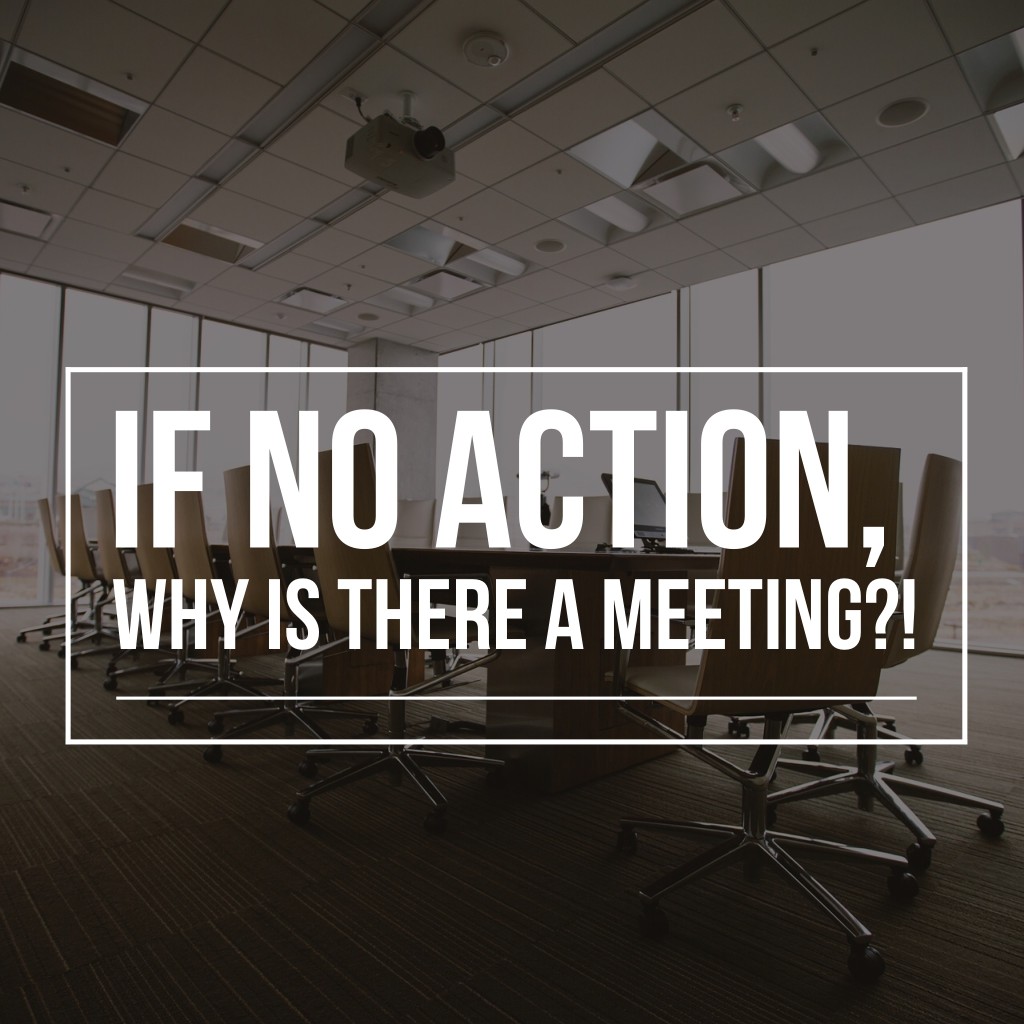It’s often referred to as one of the biggest time wasters in the American office environment today. Meetings. Many people feel they suck productivity from staffers. But other studies reflect the fact that when done right, more than 50 percent of office professionals think meetings can be productive.
Harvard Business Review (HBR) completed a study at a major company to look at how many hours it took to support a weekly executive meeting for all the management employees in the company. Because these executive meetings use information rolled up from all their respective divisions and departments, managers and directors in their reporting chains have meetings with their teams to compile data and provide explanations for outlying data, big deals or any other item company leadership may want to know more about. The sum total of all these meetings was an incredible 300,000 hours of company time devoted to this one weekly meeting!
It is estimated that 15 percent of an organization’s collective time is spent in meetings. If you’re a middle manager you spend an estimated is 35 percent of your time in meetings. And senior management? Well, you’re looking at half your time at the office participating in a company meeting.
With so many corporate resources devoted to meetings we should figure a way to make the bad ones suck a little less. In survey after survey, the top 3 complaints people have about meetings are that they are 1) unnecessary, 2) they go off-topic and that 3) people repeat things too often. I ran a quick survey asking via social media and email newsletter, “What do you hate about office meetings and why?” Here is a sampling of the responses:
“Un-organized & Not staying on topic !!!!”
“Necessity – Often times, they’re not even necessary and the intent can be accomplished through email or over the phone.”
“They’re not always efficient and are sometimes redundant. Just today, I had a meeting to go over what was discussed in a meeting last week. The person that organized the meeting could only be available via teleconference at last week’s meeting. He admitted to us, not the boss, that he ‘zoned out’ last week and he needed this meeting to get ‘caught up.'”
“I hate meetings with a lack of organization, clear direction and expected outcomes, Many times there’s no plan or focus in the meeting so follow on meetings are required.”
If management would begin to model better meeting behavior, organization meetings could be greatly improved. One of the ripest areas for improvement in worker productivity for office professionals is through implementing meeting best practices. To address the complaints the majority of staff have about meetings, management can implement three simple strategies to immediately alleviate the pain of unorganized, off topic and redundant meetings:
Strategy 1: DISTRIBUTE AN AGENDA WITH A MEETING GOAL
When you send the Outlook invitation to the meeting an agenda should be attached that lists the items to be discussed and the goal of the meeting. This gives participants an opportunity to prepare for the meeting.
Sometimes a participant can address the meeting issue and alert the team to a method to achieve the goal and then the meeting can be cancelled.
Publishing an agenda at the time the meeting is scheduled resolves the “no plan or focus,” concerns and the issue of whether the meeting is actually necessary.
Strategy 2: PUBLISH NOTES
Within 24 hours after the meeting ends an email should be distributed to all meeting participants with meeting notes. These notes are simply the agreed upon actions, who will take the action and by what date the activity will be complete. These notes function as the basis for the agenda for any follow up emails, calls or if needed another meeting.
Publishing notes helps participants stay “zoned-in,” regarding the actions and due dates of post-meeting activities that are their responsibility. Follow on meetings to review or discuss subjects addressed in previous meetings are unnecessary because all the information is available in the emailed notes.
Strategy 3: USE A PARKING LOT
If any subjects are raised at a meeting that are important but not directly related to the meeting goal they should immediately be added to the meeting “parking lot.” The parking lot is a virtual space to record something the team needs to remember to address, but it doesn’t need to be acted upon in THIS meeting.
Add parking lot issues as a list at the end of meeting notes for management to address since they are not needed to accomplish the meeting goal. This strategy helps the meeting stay on subject and means the discussion is less likely to drift off-topic.
These 3 simple strategies can save thousands of dollars and improve productivity in your office by reducing the time needed to meetings and in some cases, eliminating the need for a meeting altogether. Do you have other suggestions for improving office meetings?




